WELL-BEING>WELLNESS
The word wellness evokes a very specific picture someone white, thin, able-bodied, and likely with abs, clear skin, a yoga mat, and looking effortless. It’s a word that’s been co-opted by capitalism and diet culture. Here on LET IT OUT we’ll focus on true well-being not the industry of wellness. We believe that actual well-being looks different on everyone and not a moral obligation. In this interview, with dietitian and author Christy Harrison we explore using language to create more inclusion in well-being.
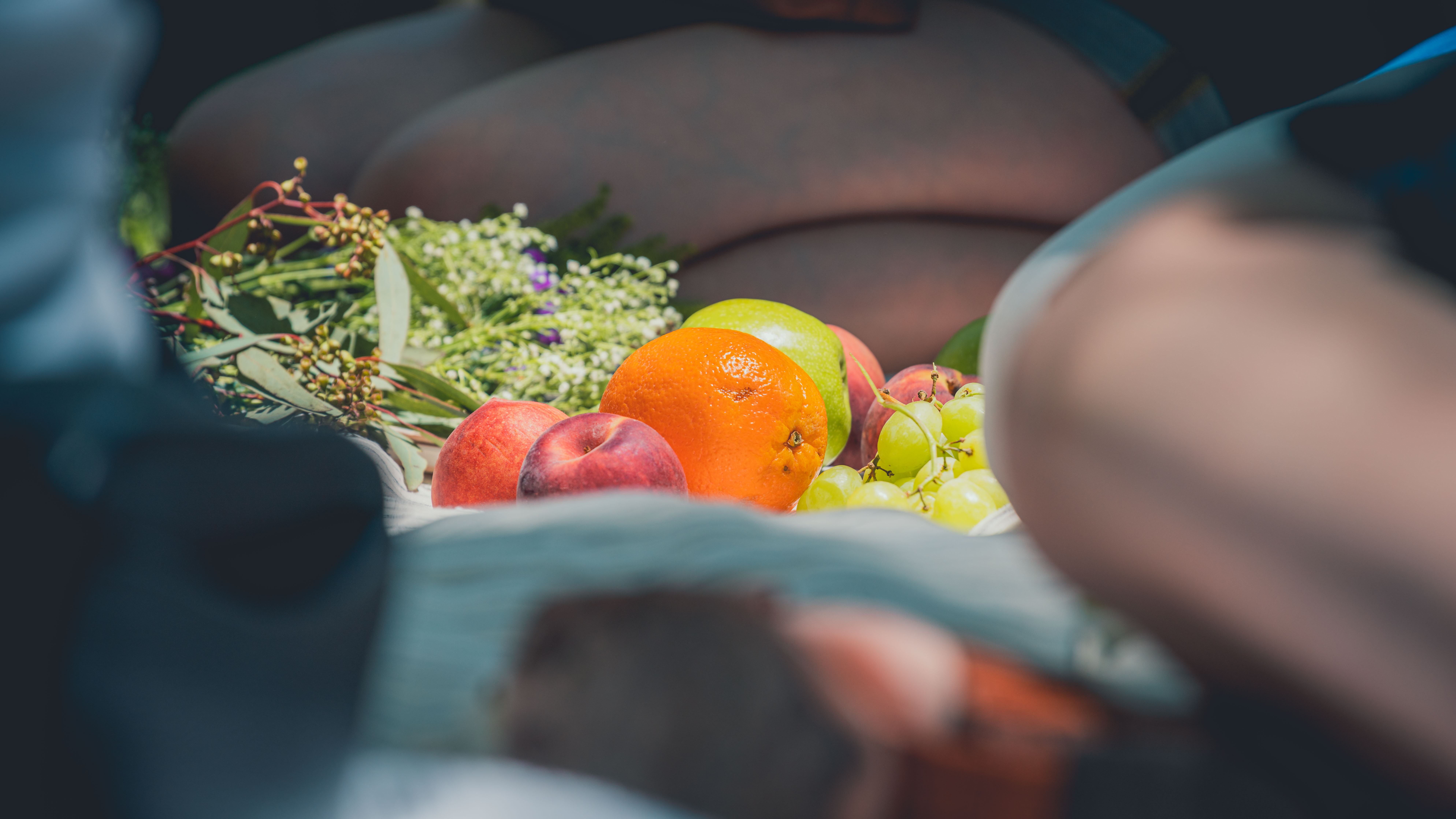
I started sharing on the internet nearly a decade ago. It began my sophomore year of college when I scored a job as a studio assistant in the journalism department renting out video and audio equipment to other students. A dream student job since I could basically get paid while I meandered the internet on my computer for 8 hour chunks occasional getting interrupted by a student checking out a camera. This was 2010, the time of the best internet and peak Tumblr era. I religiously read A Cup of Jo, Design Sponge, Bluebird, and the others. My obsession with blogs grew congruently to my obsession with wellness. So when I wanted to blog myself, I had my niche. Soon The Wellness Wonderland.com was born and I spent my time at work blogging.
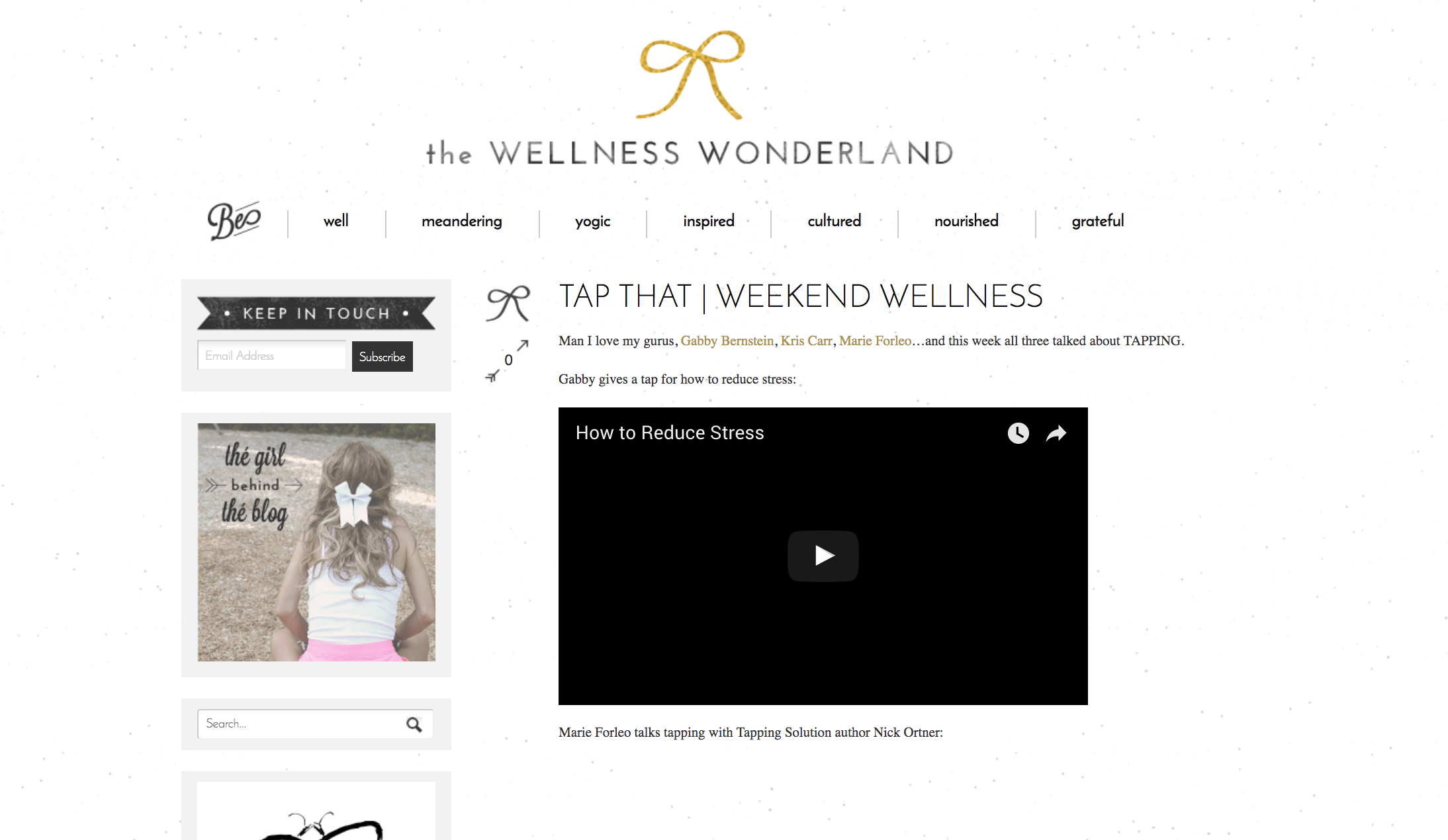
This was before avocado toast was on every menu and matcha was mainstream. I let my obsession with wellness define me. This caused me to lose a lot of weight and friends. Before I was aware of orthorexia or the dangers of being obsessed with wellness, I was evangelizing wellness on the internet, and soon, for me, it spiraled into an eating disorder. . .With my weight at an unhealthy low, not only was I receiving compliments, but I was getting questions like, “what do you eat?” “what do you do to work out?” The smaller I got, the more seen I felt. It was thrilling to share my “secrets” and “hacks” I thought I’d cracked a real code, when in reality I just had an eating disorder.
Suddenly, all I could talk about was my rigid “wellness” routines for controlling my body to be thin because it was all I could think about. It consumed me, my school work suffered, and my professors worried when I suddenly opted to change my entire career path to work within wellness. I went into outpatient eating disorder treatment, gained weight --but my entire life morphed to being about wellness. I lost interest in film, design, broadcast, acting--things that had previously excited me. Having an eating disorder at a time when my career was malleable changed the course of my work life. I ended up getting a full time for a wellness snack company and my hobbies were teaching yoga, juice cleansing, and being hungry. Meanwhile wellness exploded in popularity, only cementing my fascination with it. It felt like a band I’d discovered before it was in every commercial and I wanted everyone to know that, so blogging and eventually podcasting about about wellness became my megaphone.
Luckily my about wellness podcast became the vehicle to shift me out of my one track thinking. I allowed me to interview anti-diet advocates who became seminal mentors of mine. Isabel Foxen Duke, Caroline Dooner, Simi Botic, Kelsey Miller, Dr. Linda Bacon, and Christy Harrison taught me about intuitive eating, Health At Every Size (HAES), and the trap “The Wellness Diet” I’d deeply fallen for.
I realized how problematic my fixation with “wellness” had become not only for my mental health but for who I was sharing it with. It took years but eventually I pivoted the podcast from being about wellness. And brought back the interests that I had before chronic dieting. I still talk about true well-being which isn’t green juice and adaptogenic herbs--it’s relationships, creativity, and connection too. I scraped the Wellness Wonderland and renamed it LET IT OUT, a place for letting out *soft stories* vulnerable, tender stories that when told connect us. The purpose was no longer to geek out over chia seeds but to connect over being human.
I often joke that you can take “The Wellness Wonderland” off the internet but you can’t take the wellness out of the girl. I remained interested in and associated with wellness culture even as I tried to distance myself from it.
As my work shifted and I began to think about the ethos of this iteration of LET IT OUT 2.0, I knew self-care and “wellness” would be part of it but in a new way, that isn’t connected to dieting, includes both mental and physical health, and is inclusive.
It was author and registered dietitian Christy Harrision who informed the shift in my relationship to wellness more than anyone else. I asked her to help me clearly hash out the language for how I wanted clarify the mission of this site. Specifically to explore the words health, wellness, exercise, and self-care--all terms that have been co-opted by diet culture and capitalism. Christy studied rhetoric and is one of the most articulate people I know, so through our conversation we redefine problematic terms to:
(( Read it in full below or listen to our podcast episodes together here ))
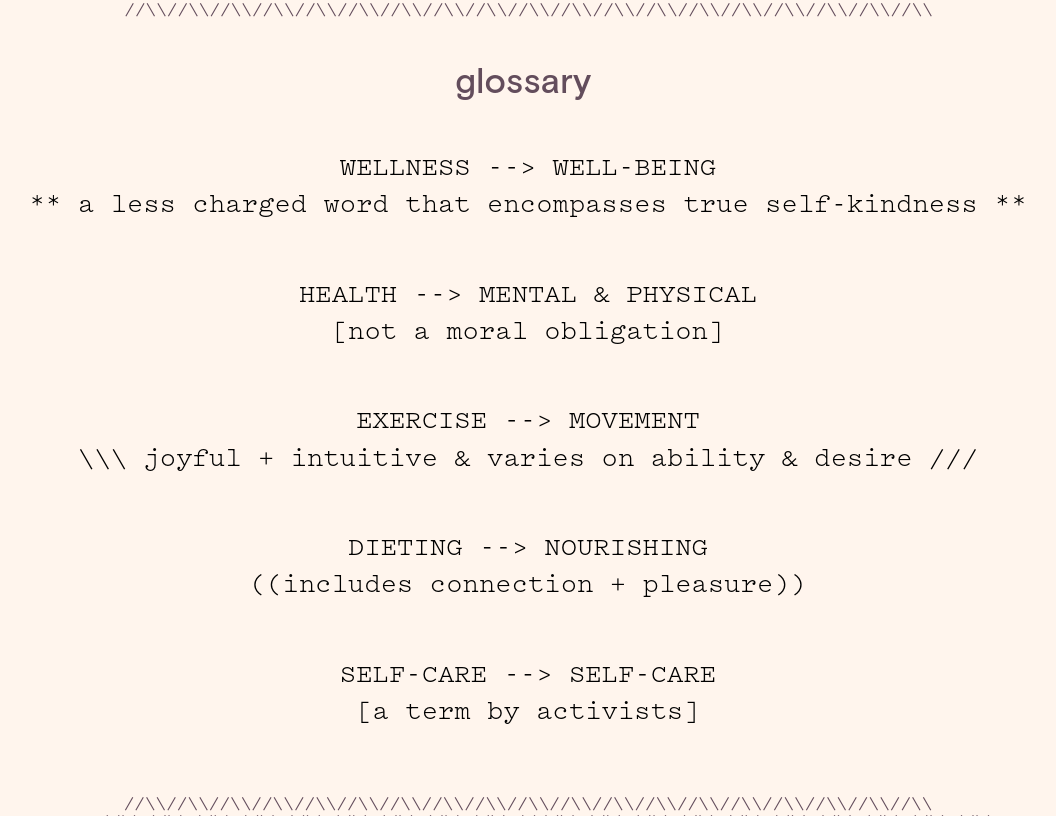
Katie Dalebout: What isn't wellness and what is wellness?
Christy Harrison: I would say what isn't wellness is a lot of what calls itself wellness. I think almost everything that calls itself wellness is actually not real wellness. And by “real wellness” I think, I mean wellbeing in the physical and mental and emotional and social and spiritual sense. True holistic wellbeing, not in this sort of only about the physical form that holistic is taken to mean in diet culture or what I call the wellness diet, which is diet culture as modern form. And I think a lot of people's visceral reaction if they have been burned by wellness is to like look askance at that word.
I even distance myself from the term “wellness” and put it in quotes and say “wellbeing” instead when I'm talking about true wellbeing. I was burned by the concept of wellness or even for me, it was sort of before wellness as a hashtag even became a thing, because Instagram didn't even exist when I got sort of sucked into it. But it was basically orthorexia, the obsession with healthy eating, obsession with healthy lifestyle, obsession with wellness.
I would argue that it's pretty impossible to do the thing that passes for wellness in modern culture without getting sucked in to an obsessive degree that may or may not be labeled as orthorexia, but that is certainly problematic for the individual, that really usurps are true mental and physical and emotional and social wellbeing.
Katie: What you were saying about the word “wellness” reminds me of how emotionally charged the word “God” is when it comes to spirituality?
Christy: Yeah, definitely.
Katie: It's interesting how a word can get hijacked and the word “wellness” itself if we got the dictionary out is in and of itself, not a bad word, but replacing it with wellbeing makes sense only because of what the culture has done to that word. Am I understanding that correctly?
Christy: I think it's almost got this sort of post traumatic stress response that it provokes. It's like where people have been burned by the things that masquerades as wellness but are actually diet-culturey and steal our time, colonizes our head space, makes us feel bad about ourselves, and obsess about food and our bodies. That's why I tend to say “wellbeing” to distinguish between what people would see on the surface when they hear the word wellness versus what I think of as true wellbeing that's divorced from diet culture.
Katie: So, what is that true wellbeing to you then? How do you personally define that?
CHRISTY:TRUEWELLBEINGISSOMETHINGTHATENCOMPASSESALLASPECTSOFYOURLIFE,ANDTHAT'SBASEDONFREEDOMANDLIBERATION.
Wellbeing within the realm of food it is….
Not being beholden to rules, using your inner compass as a guide, not having obsessions that drive behaviors with food, but feeling like you're truly free to eat whatever you want, whenever you want. Learning from your own experiences with eating to trust your body's wisdom about how you might respond to certain foods - but without having that colored by diet culture and by mainstream wellness in a way of “the wellness diet” --that makes food out to be this moral issue. There's such things as good and bad foods. There's now status associated with eating certain foods and you can lose your status or lower your status by eating the “wrong foods.”
Wellbeing in the realm of movement is…
What diet culture tends to call exercise, and I've moved away from using that word too, because that word is loaded with baggage. And actually, even the genesis of that word is really problematic because it was first used to talk about driving livestock to the field to plough. It was used for military drills. And so, all of that is not joyful, it’s punishing. Joyful movement or intuitive movement is s divorced from that punishing quality that's not part of the moral belief system, of feeling forced to move your body with the purpose of shrinking it, or tone it. It’s not using movement to compensate for eating choices. Asking what are you interested in doing, how do you like to move your body? What's enjoyable? And also, what do you need in terms of physical therapy or if you have a disability or chronic pain; like what do you need in order to feel good, in order to manage your conditions, in order to have greater stamina or flexibility or mobility. How can we respect our body’s abilities and disabilities without judging them and without feeling like we're supposed to be measuring up to some outside ideal of “wellness.”
Katie: From this conversation I'm switching words in my vocabulary. So, wellness to wellbeing, exercise to movement, dieting to nourishment.
Then the last one that I would want your take on is the word “self-care.” That's one that I think is on the precipice of being hijacked also by wellness and diet culture. What do you think about the term self-care?
Christy: It’s tough because there's a lot of things that go under the guise of self-care that are really not. Like people saying, “My weight loss journey is about self-care.” And it's like, no, it's actually oppression. It might feel like there's certainly an escaping of weight stigma or the hope of escaping weight stigma - and that is completely understandable. And I would never want to denigrate people's efforts towards that because we all deserve to live free from weight stigma.
And yet, the practice of weight loss itself, the pursuit of weight loss itself is damaging to our bodies and our minds. And it is born out of this system of oppression that is diet culture, which has roots in racism and patriarchy. It is a system of oppression that we apply to ourselves. And so, calling that self-care is really messed up because it's not self-caring at all.
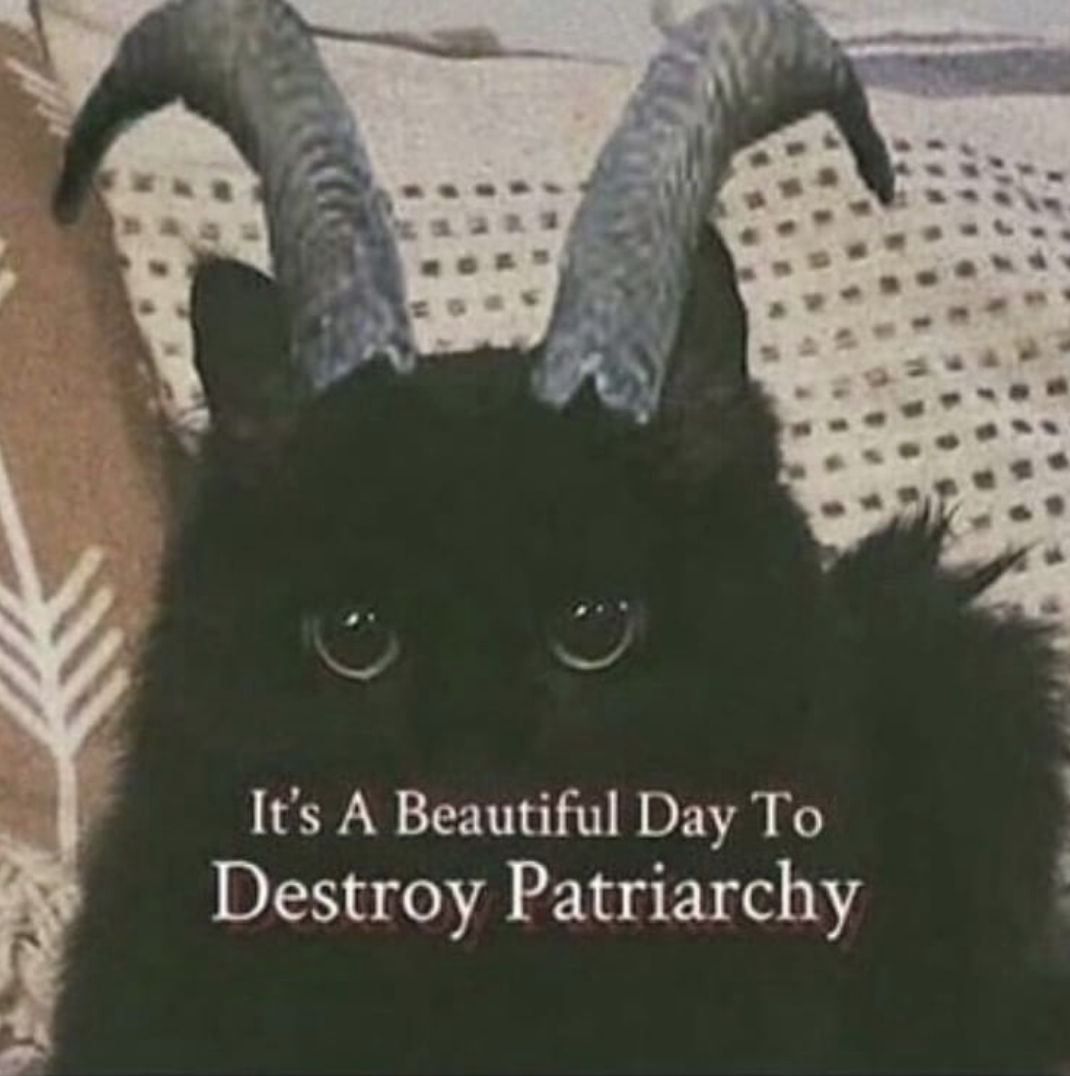
The roots of the phrase “self-care,” were coined by Audre Lorde. She talked about it as an act of radical self-preservation as a necessary act for activists in order to help recover from the sort of demands of activism and to preserve our energy and conserve ourselves for the fight. She was specifically talking about black women. But was an intersectional feminist and was for women's liberation as a whole.
I think the idea of self-care in her sense is important for women and marginalized people, people of color, black folks, trans folks, people with disabilities, people who are doing activism in these areas and who are marginalized - and so experiencing the oppressions that they might be fighting against or maybe experiencing other oppressions. I'm in a thin body but I'm also a cisgender woman. So, I experience sexism and misogyny and I do to some extent experience diet culture of course, because I live in it. But I'm not in a larger body, so I'm not experiencing weight stigma even though I’m centering a lot of my career around fighting against that.
But I feel for me, personally and for other activists I know, self-care is essential.
IT’SIMPORTANTTOUNPLUG,TONOTBEENGAGEDINTHEFIGHTSOMETIMES,ANDTOLETOURSELVESHAVEDOWNTIMETOPLAY,HAVEFUN,ANDBECURIOUS.
This takes privilege to even get to that point because if you're in a marginalized body, sometimes you don't have the privilege of totally unplugging and disconnecting from the fight.
But I think everyone, even those who are marginalized and can't escape it in their daily life, need to find some place to go, that is safe from that. Even if it's in your own home doing whatever feels good to you, like lying down on the floor and closing your eyes and playing some soothing music or taking a bath or making some food after a long day.
ITHINKSELF-CARECANBEBORINGANDMUNDANE,LIKEBRUSHINGYOURTEETHORTAKINGOUTYOURCONTACTSBEFOREYOUGOTOBED.LITTLETHINGSTHAT WHENWE’REOVERWHELMEDORDEPRESSEDBECOMEEXTREMELYDIFFICULT.
There’s privilege in even being able to engage in self-care. Self-care is not accessible to everyone depending on their mental health status or their socioeconomic status. It doesn't have to be expensive. It doesn't have to be a day at the spa . It could be a day in the park or a day with nothing planned where you can just read.
Katie: Or self-care can be organization. It's laying out your clothes the night before because you know that stresses you out or doing a little bit of your email because you know you're going to be overwhelmed by the next day. It's preparation and it's taking care of your life, I think.
Christy: I think taking care of your life is adulting and probably overlaps with self-care.
Katie: If I was going to replace that word, it might be self-acceptance or self-organization or life care even? Maybe it's not necessary that that word needs to be replaced yet, but it could just be even replaced with rest or slowing down. It’s simple.
Christy: It takes many different forms. I think trying to put it all under one umbrella of self-care might make it more likely to get twisted in the service of diet culture and patriarchy.
So, replacing that in certain contexts with what are you actually talking about? Are you talking about rest? Are you talking about getting your emails done? Are you talking laundry? All of those things are self-care.I don't know if it needs to be your place yet. And I feel like that sort of the idea of reclaiming what the actual roots of that word are, that idea of self-care for activists is important.
Katie: Good point. And I think it's interesting because I like the idea of reclaiming that word. However, I think it's been and is starting to be more and more hijacked into wellness culture. And I think of that word in a vanity sense. I think face masks, skincare, and baths. I think there's definitely some internalized misogyny in skincare and some of these things. But they aren't necessarily problematic and can be a fun hobby. What are your thoughts on vanity and self-care?
Christy: I think it's tricky. Because like you said, there's sort of the patriarchal element there too of telling people assigned female at birth that they're supposed to be doing these things. And it's starting to be a little bit sold to people assigned male at birth too. Like men's grooming. But I think for the most part, it's still pushed on women and people assigned female at birth, that we're not supposed to ever have a blemish visible or that pores have been demonized and airbrushed out. Why do we feel the need to take these certain herbs? Is it because of an image of health and wellness that's been sold to us as like?
It’s usually a very young, no visible signs of aging white cisgender thin able bodiedwoman who has visible signs of wealth. It’s worth asking yourself, “What am I imagining about the kind of person who does this thing? Do I have an image in my head of the kind of person who does this face mask? or drinks this herbal tonic?”
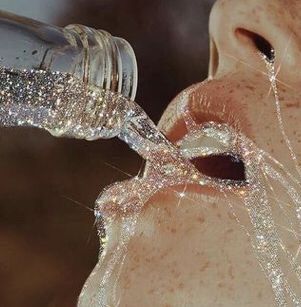
And if you sort of have an image pop into your head or you have some adjectives come into your mind - I tend to be more of a word person. And not to say that you shouldn't do it or that you wouldn't actually like it for its own sake, maybe you would! But I think it's worth interrogating it, being like, “I'm going to put this in the bucket of my problematic faves” as the “She’s All Fat” podcasters say.
Katie: Did you used to do this with food when dieting?
Christy: Yes! I used to think that I loved rice cake so much and I'd make all these different things with rice cakes. (That was before wellness was what it is now, today it would probably be some seeded raw cracker.) But at the time, it was gluten-free, it was my one carb I’d allow myself to eat. And now, I'm like, “Oh, those are so cardboardy, they don't taste like anything. They're dry.”I'd much rather have whatever it is making on some delicious bread.
I think that's a good question to ask yourself with any self-care activity - is, “Am I doing this in part because of some sort of internalized oppression?” And it's okay if you are, because I think we all make choices based on that. But is it hurting or helping me? Is the oppression that I've internalized outweighing the benefit that I'm getting from this thing maybe?
Katie: Yeah, you mentioned that you’re a words person, you're so articulate and have a robust vocabulary, which is something I really admire about you. So, with that, we now have gone made dieting → nourishment, wellness → wellbeing, exercise → movement, self-care → maybe just self-care. But self-acceptance and rest and really getting down to the root of what self-care is and why. Is there any other term or word that you think needs redefining?
Christy: Health is the same as wellness in that sense. I think I tend to substitute wellbeing for health or if I do say the word “health,” I tend to say physical and mental health. And health is not a moral obligation, pursuing health is not within everybody's realm of possibility. People have a certain constraints on them against pursuing health.People can be lacking in health for many reasons, none of which are their personal responsibility. And even if someone doesn't have the desire to prioritize health doesn't mean that they're worthless or that they're deserving of poor treatment or less respect or anything like that.
Katie: You studied rhetoric so keeping in this vein of words, adjectives.If you thought of someone that is truly embodying wellbeing, what are some adjectives you would use to describe them?
Christy: I would say free, liberated, and joyful. But again it is tough because all of this comes in a context of privilege. Even the idea of wellbeing, there's a privilege to being able to attain that. It’s tricky to try to define the type of person who has it, because I think often we'll get back to that white privileged, cisgender etc. I think anytime people try to paint a picture of it, it gets back to the system of oppression that we're already in and replicates that.
ITHINKTHEIDEAOFFREEDOMANDLIBERATIONISCENTRALTOMETOTHEIDEAOFWELLBEING.
The last thing I would want, is if we started a trend of redefining wellness as “wellbeing”, and then that gets co-opted too by the same forces that have co-opted the word “wellness.”To some extent, there's no way to stop that. It’s just -
Katie: Semantics?
Christy: Yeah, and it's the steamroller of an oppressive culture that will suck things under in its path. What we have to do is stop the steam roller. And I try to use language to stop it. I think redefining things or pointing things with language can help halt this oppressive system or change it.
WELLBEING,ISVERYPERSONAL.ITHINKTHATEACHPERSON'SWELLBEINGWILLLOOKDIFFERENT.IT'LLINCLUDEMENTALWELLBEING,SOCIALCONNECTIONS….
Katie: Creativity!
Christy: Creativity, meaning inspiration, sense of purpose in the world!
Katie: That’s huge. I think that's everything.
Christy: Totally. But then, there's, there's different values that people have too. So, some people family might be more important. For others, they're more loners and they don't get along with their family and they haven't found a chosen family and they like it that way. And maybe for them, having sort of an inner life is more critical to wellbeing. Having their creativity expressed and being able to have their inner life as a refuge is important.
Katie: Yes and spiritual connection for some people, many people! Me!
Christy: Totally.
Katie: Yeah, to me, I think it's about listening to where you are now and knowing that it's individual and keeping it malleable. It changes with age, with the seasons, with what's going on in your life and with the world as a whole.
Christy: I think that's another piece of it too, is changing. Maybe that's an adjective for wellbeing. It’s ever changing or adaptive. Because wellbeing is the ability to adapt to your situation. In our society, we would tend to say a person who is struggling with an addiction doesn't have wellbeing because of that addiction. But there is a sense in which that impulse to care of yourself and adapt to the situation does exemplify wellbeing.
So, I think there's a spark of hope maybe in that for people who are in a situation that feels bad or eating disorders too, same thing. The eating disorder is often an addiction. It’s a process addiction--not a food addiction, it’s a way to cope with difficult circumstances and that in and of itself is very human, it's very resourceful, it's very adaptive. The impulse to use what you've got to make your circumstances better.
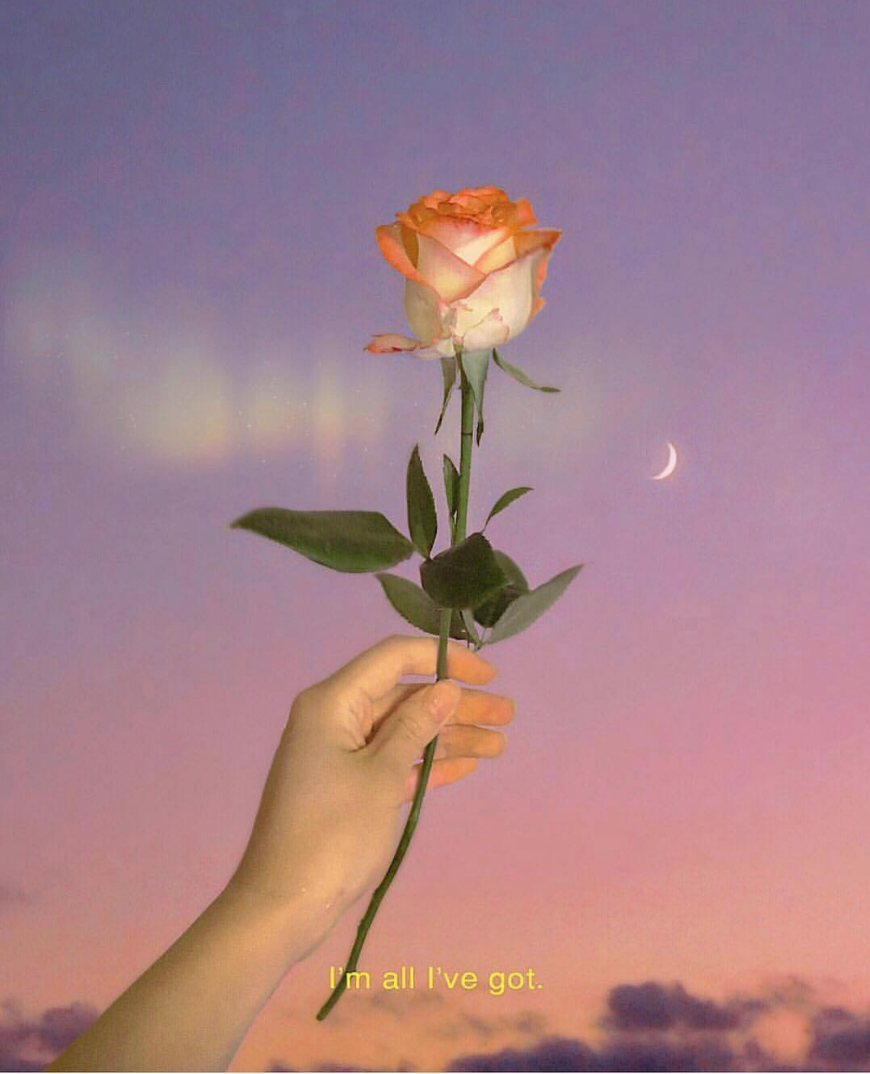
I think it's sort of a matter of finding the things that are adaptive but also, don't detract from your overall quality of life in the long run.
Katie: Knowing what my goals are for this project this LET IT OUT 2.0, what would you how would you advise me to create a space that’s inclusive, cozy, soft, kind, and an environment where people of all sizes and genders and sexual orientations feel safe?
Christy: To some extent, there's no way to ensure everybody feels safe, especially when you're coming from a position of privilege, you can't know what's going to trigger certain people. You can't know what your opaque spots are. You can't know what you don't know.
So, I think doing your best to be inclusive, doing your best to listen and just continue educating yourself on these issues – I spend a lot of time lurking on peoples’ Instagram that are doing a lot of education around race and disability. And I don't really comment on those posts, I don't really get involved in the conversation, but I just try to stay in it and learn and challenge my own lingering biases so that can inform my work.
I think even though I've been doing this work for years now and feel very rooted in the Health at Every Size Community and I've been doing good allyship to the fat acceptance and fat liberation movement, I still have moments.
And when I do I try to learn and do better next time. And now, I have the tools to do that. And I reached out to someone who is in that world who I think would be really helpful to have as a consultant. So, I think just kind of expect that missteps are going to happen.
Katie: Yes I’m going to make mistakes and I need to be open to learning.
Christy: Exactly. And I think it's so human to be defensive and upset at first, but don’t let it inform how you respond, if you can respond in a caring way, like apologizing for the impact you've had, saying that you're going to take this into consideration and you're going to work to not let it happen again. Thanking people for their time and their labor in pointing it out to you, and then signing off. Then doing whatever work you need to do behind the scenes of self-care for processing the shock of having been called out.
Katie: Yeah, making my intention to be inclusive but knowing it’s impossible because of my privileges to see everything clearly from every perspective but I can try to empathize as well as I can.
Christy: Exactly. You’re doing your best also to bring in people who have those perspectives.
Katie: Which is the whole point of adding to what I already do with the podcast.
Christy: Totally.


